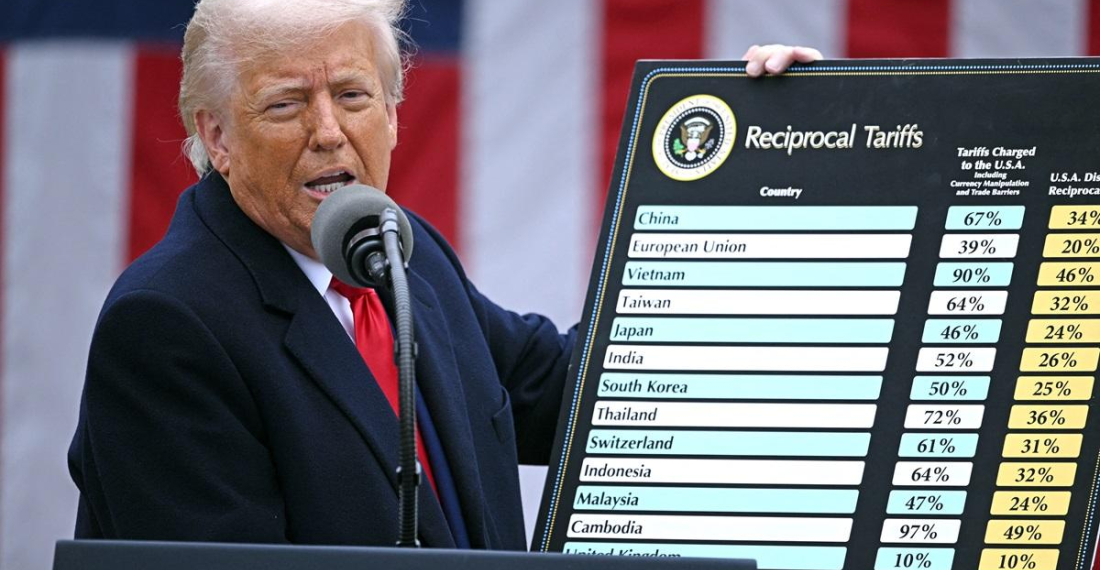Stock markets and the dollar have tumbled after US President Donald Trump's latest worldwide tariffs caused a trade war that many fear will spark recession and ramp up inflation. The dollar slumped by as much as 2.6 percent versus the euro, its biggest intraday plunge in a decade. European Commission President Ursula von der Leyen said the EU was "preparing for further countermeasures" but she emphasised it was "not too late to address concerns through negotiations". China announced on Friday that it will impose a 34% tariff on imports of all U.S. products beginning April 10 as a retaliatory measure.
On stock markets, Wall Street's tech-heavy Nasdaq Composite dove around six percent, while the retreat in the S&P 500 was its biggest in a day since 2020. Shares in apparel companies, which rely on cheap labor in factories abroad, fell sharply with Nike sinking more than 11 percent and Gap tanking more than 20 percent. "The simultaneous decline in both stocks and the US dollar speaks volumes about investor confidence in Trump's trade policy," said City Index and FOREX.com analyst Fawad Razaqzada.
Apple, whose iPhones are largely manufactured in China, fell by over nine percent. Across the globe, shares in major sectors including auto, luxury and banking also took big hits. Shares in Jeep-maker Stellantis fell 7.5 percent after it said it would pause production at some plants in Canada and Mexico as 25 percent car tariffs came into force. Tokyo's Nikkei briefly collapsed by more than four percent. In Europe, both the Paris and Frankfurt stock exchanges finished the day with losses of more than three percent.
Oil prices plummeted more than six percent on concerns an economic downturn would hit demand. Gold, a safe haven asset in times of uncertainty, hit a new peak of $3,167.84 an ounce before retreating somewhat. Yields on government bonds fell as investors fled risky assets and piled into safe-haven treasuries.
The panic came after the US president unveiled a blitz of harsher-than-expected levies aimed at countries he said had been "ripping off" the United States for years. The measures included a 34 percent tariff on world's number two economy China, 20 percent on the European Union and 24 percent on Japan. A number of others will face specifically tailored tariff levels, and for the rest, Trump said he would impose a "baseline" tariff of 10 percent, including on Britain.
However, Trump later said he would negotiate "as long as they are giving something that is good." Investors are bracing for retaliatory measures, but governments also left the door open for talks. China vowed "countermeasures" and urged Washington to cancel the tariffs, while calling for dialogue.






